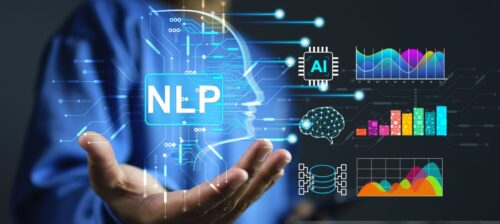Artificial Intelligence (AI) has made significant advancements in recent years, such as transforming industries, enhancing decision-making, and automating processes. From self-driving cars to recommendation systems, AI is changing the way we live and work. However, despite these advancements, AI still faces certain limitations, particularly in processing complex data. These limitations also include while performing tasks that demand massive computing power. This is where quantum computing steps in.
Quantum computing is an innovative technology, and has the potential to revolutionize problem-solving across various fields, including AI.
But how exactly will quantum computing impact AI applications?
To understand how quantum computing can impact AI, it’s essential to first understand what quantum computing is?
Once we have a basic understanding of quantum computing, we can then explore how this technology can enhance AI-driven applications.
How Quantum Computing Will Benefit AI?
1. Faster Data Processing
AI systems require large amounts of data to learn and make informed decisions. For instance, a driverless car needs to process data from sensors and cameras in real time to navigate safely. Traditional computers process data bit by bit, which can be slow when handling large datasets examples.

Quantum computing systems can process multiple pieces of data simultaneously, which dramatically speeds up the analysis. Quantum machines could enable AI systems to process data much faster. Certainly, this can cause their ability to perform complex calculations in parallel. Moreover, these calculations will allow for quicker decision-making and real-time responses. Also, this can improve applications like self-driving cars, personalized recommendations, or real time language translation.
2. Improved Machine Learning Optimization
Machine learning is a branch of AI that trains algorithms to identify patterns in data and make predictions. This process often involves optimization, which means finding the best solution among many possibilities. Traditional computers rely on methods like gradient descent to optimize machine learning models. However, these methods can be slow and inefficient, particularly when working with complex datasets.
Quantum computing can help to optimize machine learning algorithms by simultaneously exploring multiple solutions. Quantum driven algorithms, such as the quantum approximate optimization algorithm (QAOA) have the potential to find solutions faster, and more accurately than classical algorithms. Thus in this way, AI models trained more efficiently. Moreover, this improves prediction accuracy and enhances performance in applications like fraud detection and medical diagnosis.
3. Solving Complex Problems
AI solves complex problems, such as predicting stock market graph patterns, diagnosing diseases, and designing new materials. However, many of these problems involve so many variables and complexities that traditional computers struggle to manage them. Quantum computing solves these types of problems efficiently. For example, Quantum computers can simulate molecules and chemical reactions at the quantum level, which classical computers can’t do efficiently. This could transform AI in drug discovery by helping researchers develop new treatments more quickly. Similarly, quantum computers could help AI systems optimize supply chains, predict climate changes, and improve financial forecasting by processing vast amounts of interconnected data more efficiently.
4. Enhancing Natural Language Processing (NLP)
Natural Language Processing (NLP) is a branch of AI that helps machines understand and generate human language. NLP enables applications such as chatbots, voice assistants, and language translation tools. However, understanding human language is incredibly difficult because of its nuances, idioms, and context.

Quantum computing could improve NLP by enabling AI systems to process and analyze language in more advanced ways. Quantum computers could enable AI models to process vast amounts of language data. Hence, this advancement could result in more accurate and flawless language translation, smarter chatbots, and improved speech recognition in virtual assistants.
5. Quantum Machine Learning (QML)
Quantum Machine Learning (QML) is an emerging field that combines quantum computing with machine learning techniques to solve complex problems more efficiently. QML investigates how quantum computers can enhance the performance of machine learning models and algorithms. Although quantum machine learning is still in its early stages, it shows significant potential for the future.
By using quantum computing algorithms, QML can improve AI’s ability to analyze and learn from complex datasets. For example, quantum computers could enable AI systems to identify patterns in data that traditional computers might overlook. This advancement could lead to breakthroughs in fields, such as image recognition program, speech processing, and predictive analytics example.
Challenges to Overcome?
While quantum computing presents exciting opportunities for AI, there are still several challenges to overcome before these benefits can be fully realized. Quantum computers are still in their early stages and are not yet powerful or stable enough to surpass classical computers in most tasks. Quantum hardware is extremely sensitive to environmental factors, which can cause errors in calculations. Also, quantum algorithms are complex and need specialized knowledge for development and optimization.
Moreover, professionals with expertise in both AI and quantum computer are scarce, as these fields require highly specialized skills. As a result, integrating quantum computing into AI applications may take time and require substantial investment in research and development.
Conclusion
Quantum computing will transform AI applications. This works by enabling faster data processing, optimizing tasks more efficiently, and addressing complex problems beyond the capacity of traditional computers. Although quantum computing is still in its early stages, its potential benefits for AI are immense. As quantum technology evolves, AI will become more powerful and intelligent in addressing some of the world’s most critical challenges.
For businesses and researchers, adopting quantum computing could unlock groundbreaking AI capabilities. Although challenges remain, the future of AI powered by quantum computing appears exceptionally promising.


